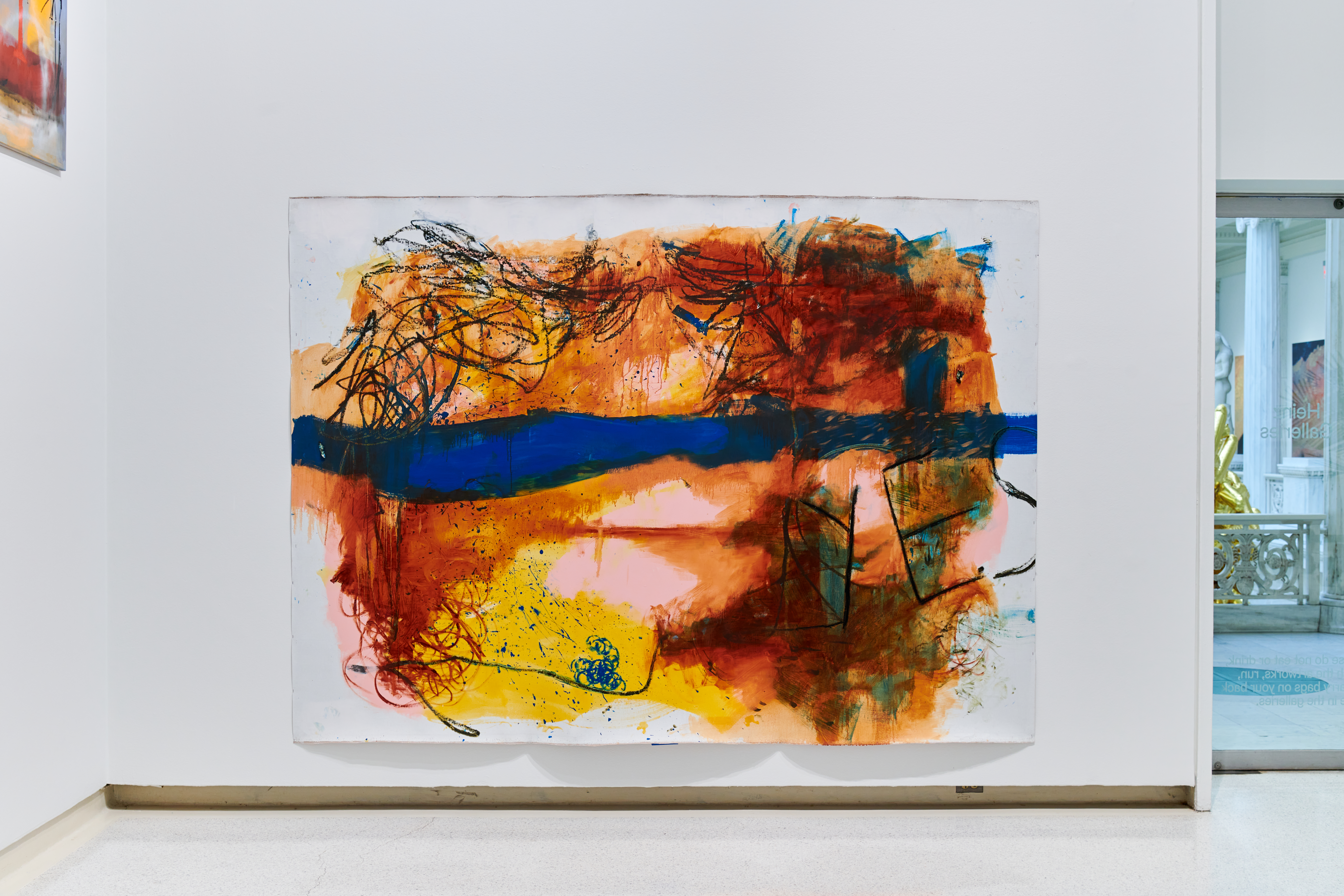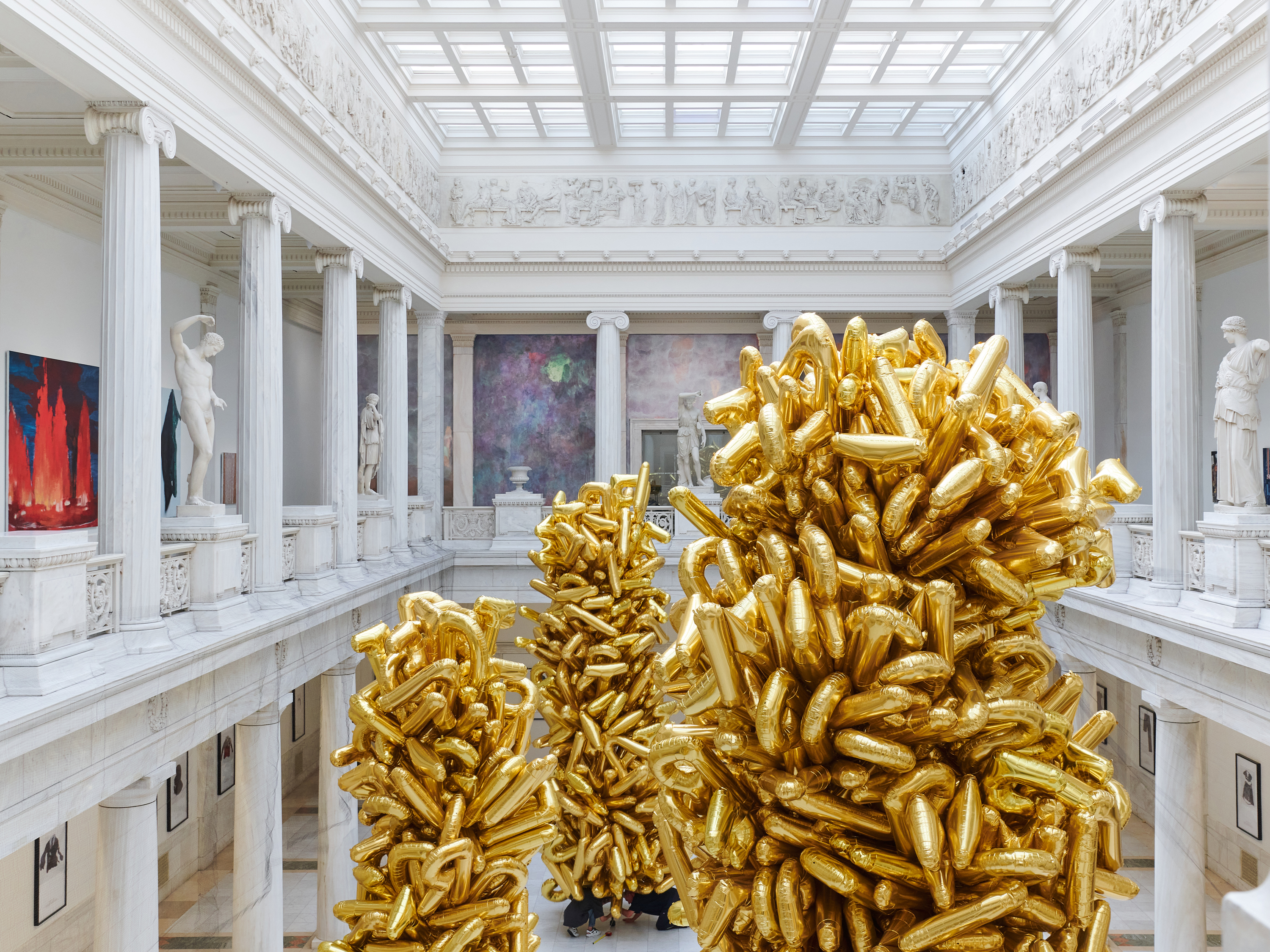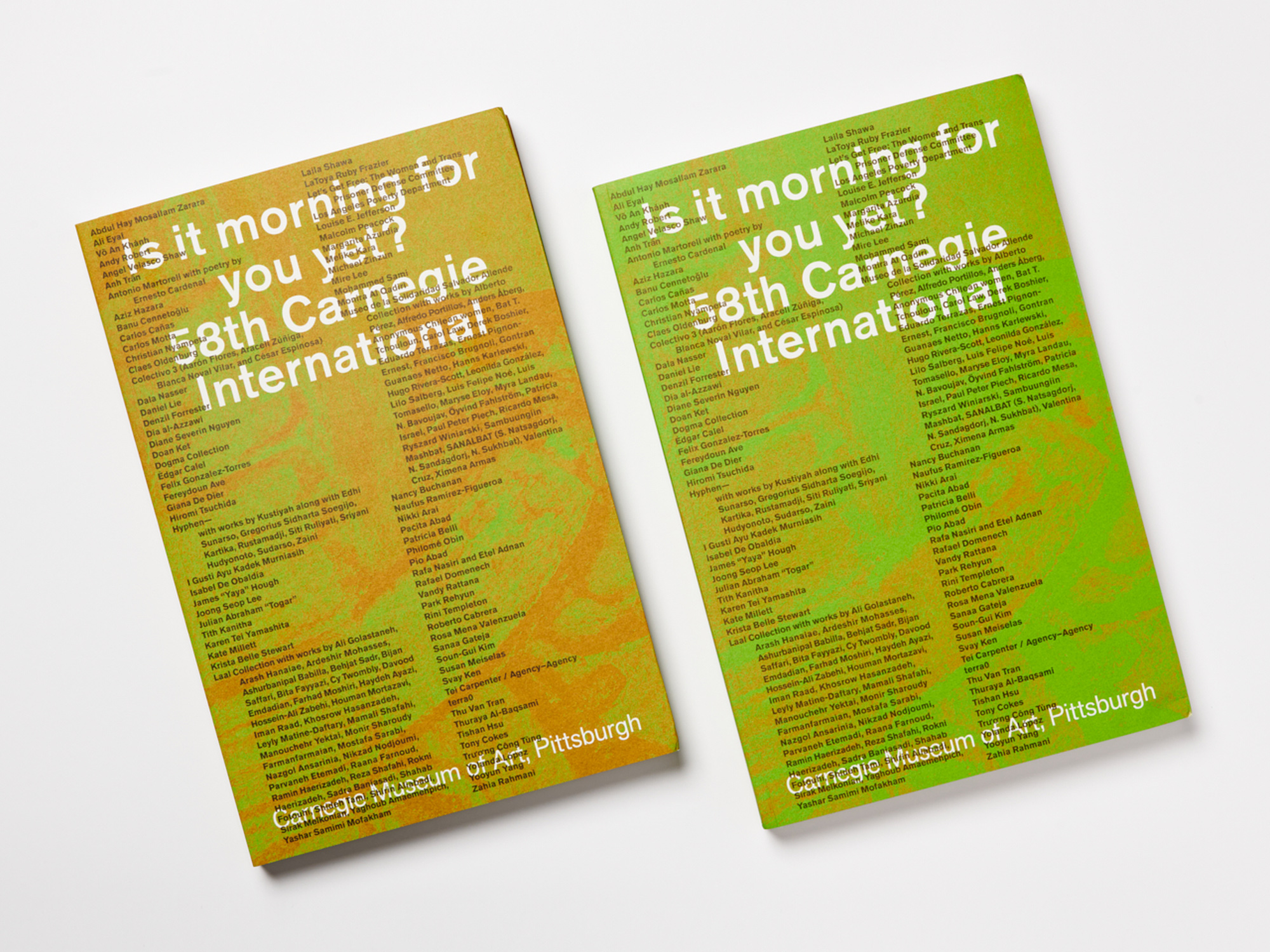In her paintings, Anh Trần (b. 1989 in Bến Tre; lives and works in Tāmaki Makaurau/Auckland) draws on the history of Western postwar painting, such as American Abstract Expressionism and German abstraction of the 1980s loosely associated with the Neue Wilde movement. Rather than mine the discursive, theoretical, or technical aspects of this history, the artist responds to the emotive quality of these works, which she has primarily engaged through reproductions in books. Trần is interested in liberating the expressive capacity of painting from formal and academic stricture and decentering art history to question the false dualisms of original and replica, center and periphery, authenticity and forgery. Further, Trần’s work responds to Western modernism’s appropriation of other aesthetic traditions that do not acknowledge their roots in vernacular cultural practices and customs. The artist draws from various painterly mark-making techniques, paint types, and treatments of canvas that are historically associated with white male painting, which come from the “desire to take what you cannot do or are supposedly not allowed to do and to use that energy in your own way.” Often working spontaneously and on multiple paintings at once, Trần explores how these many styles and technical approaches can give form to everyday feelings, desires, and expressions worked out in the studio.


